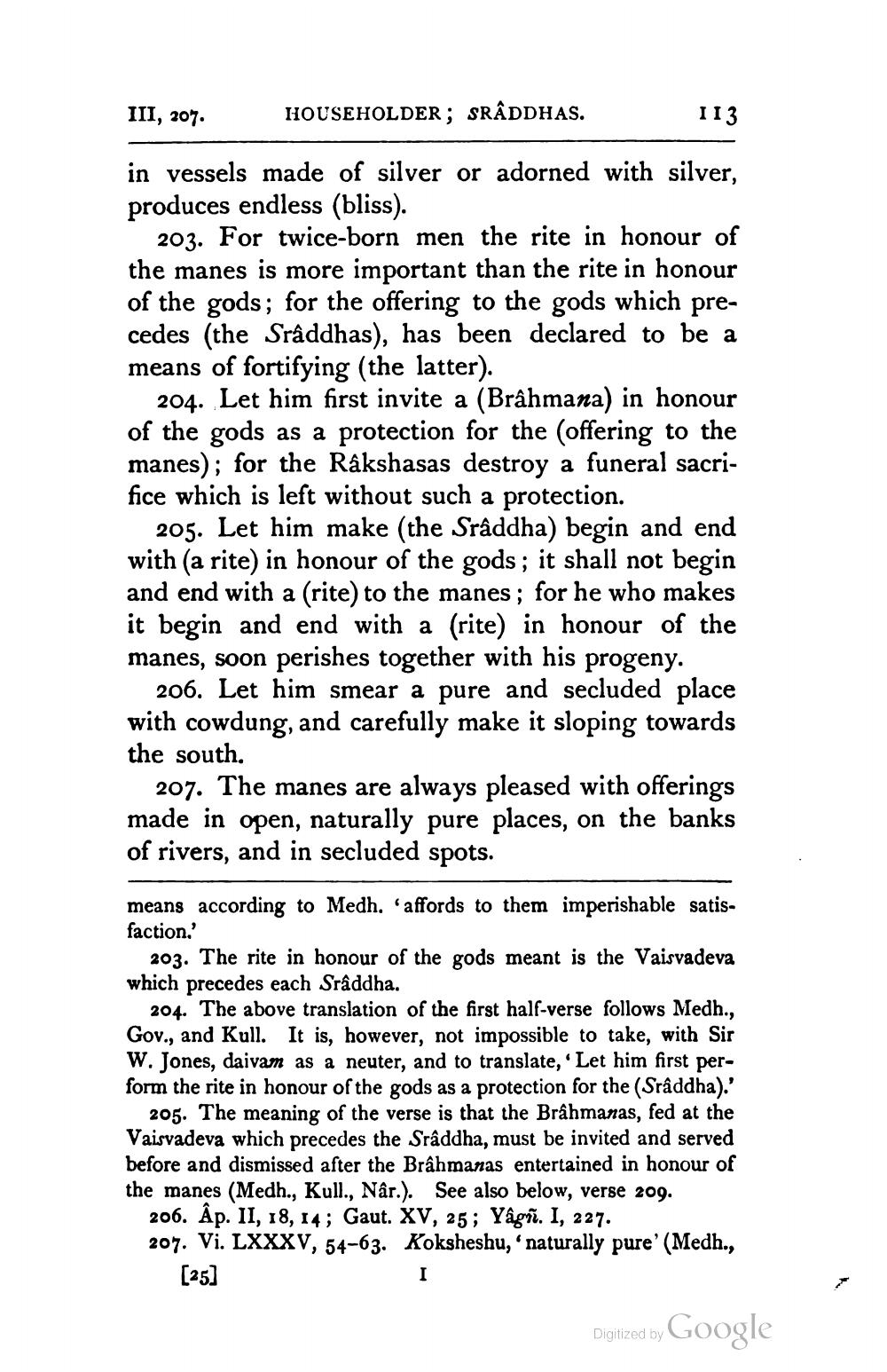________________
III, 207.
HOUSEHOLDER; SRÂDDHAS.
113
in vessels made of silver or adorned with silver, produces endless (bliss).
203. For twice-born men the rite in honour of the manes is more important than the rite in honour of the gods; for the offering to the gods which precedes (the Sraddhas), has been declared to be a means of fortifying (the latter).
204. Let him first invite a (Brâhmana) in honour of the gods as a protection for the offering to the manes); for the Rakshasas destroy a funeral sacrifice which is left without such a protection.
205. Let him make (the Sraddha) begin and end with (a rite) in honour of the gods; it shall not begin and end with a (rite) to the manes; for he who makes it begin and end with a (rite) in honour of the manes, soon perishes together with his progeny.
206. Let him smear a pure and secluded place with cowdung, and carefully make it sloping towards the south.
207. The manes are always pleased with offerings made in open, naturally pure places, on the banks of rivers, and in secluded spots.
means according to Medh. affords to them imperishable satisfaction.'
203. The rite in honour of the gods meant is the Vaisvadeva which precedes each Sraddha.
204. The above translation of the first half-verse follows Medh., Gov., and Kull. It is, however, not impossible to take, with Sir W. Jones, daivam as a neuter, and to translate, Let him first perform the rite in honour of the gods as a protection for the (Sraddha).'
205. The meaning of the verse is that the Brâhmanas, fed at the Vaisvadeva which precedes the Sraddha, must be invited and served before and dismissed after the Brâhmanas entertained in honour of the manes (Medh., Kull., Nâr.). See also below, verse 209.
2o6. Ấp. II, I8, 4; Gaut. XV, 25; YÊg. I, 227. 207. Vi. LXXXV, 54-63. Koksheshu, naturally pure' (Medh.,
[25]
Digitized by Google




